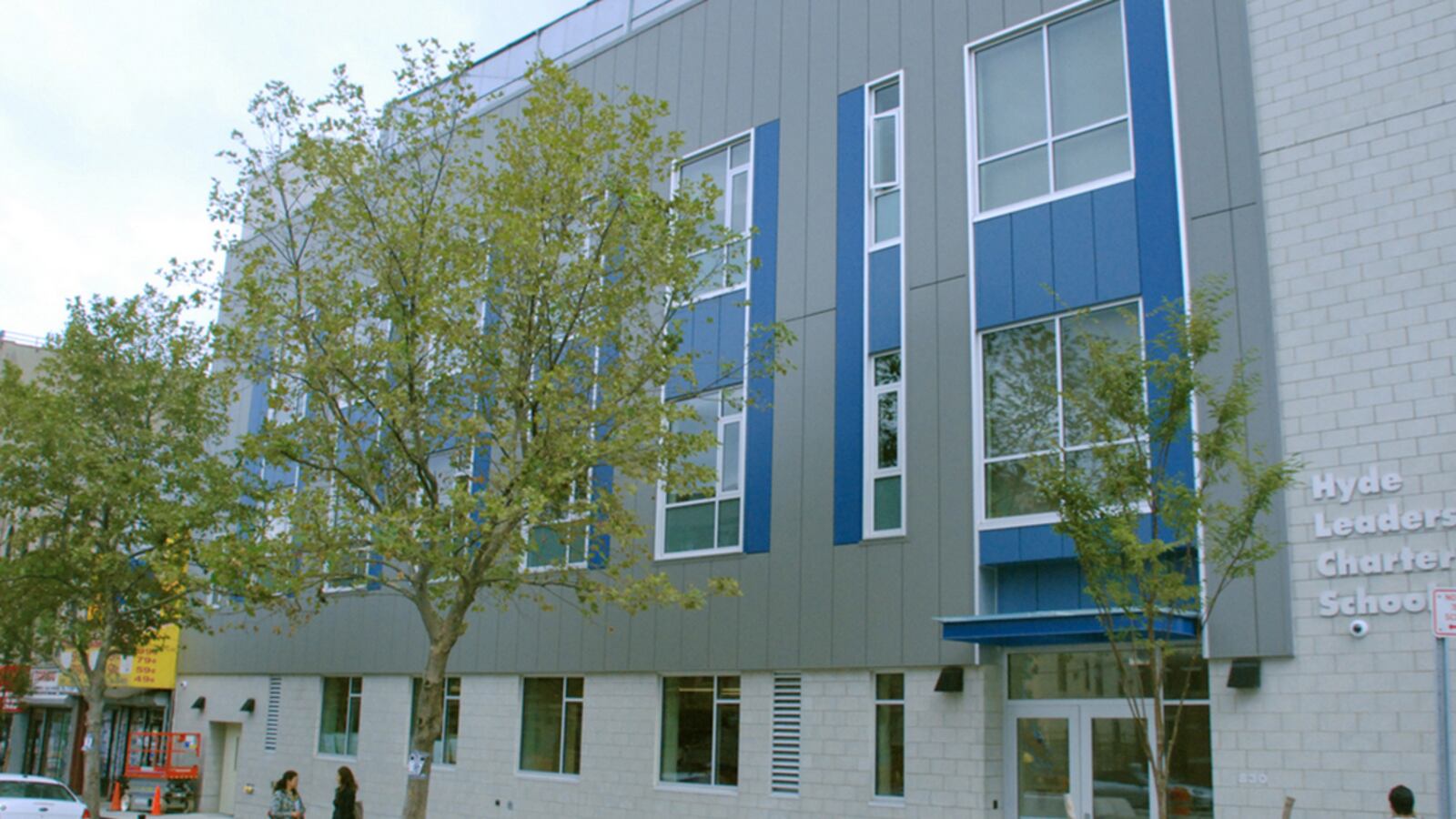When Michael Duffy opened Great Oaks Charter School in a shuttered Catholic school building last year, he assumed he’d continue to pay rent as Great Oaks expanded, year by year, to eventually serve grades 6 through 12.
Starting this year, however, he’s hoping the city will pick up the tab.
Duffy’s newfound optimism comes months after the passage of a new state law that seemed to offer little to schools like his. The legislation grants some charter schools a right to publicly-funded space, but lawmakers said then that it would only help brand-new schools or schools that decided to apply for a new charter to add grades.
“The initial conclusion that I had was that it wouldn’t apply to Great Oaks because it would only apply to new schools,” said Duffy, who is the president of the Great Oaks Foundation. “I kind of put the issue aside.”
That changed in June, when the New York City Charter Center CEO James Merriman told charter leaders that he interpreted the law differently. And if the city accepts that reading of the law — or if the interpretation holds up in a legal dispute — the city could be on the hook for millions of dollars more in rent than it expected.
Merriman told school leaders that the law could also be read to include charter schools in private space that are adding grades under their current plans, like Great Oaks. The Center’s guidance on the law has encouraged schools to request that assistance from the city beginning this year, triggering a process that could mean big savings for the 45 charter schools that the Center says are still growing in private space.
Because charter schools don’t receive facilities funding, schools in private space receive about 20 percent less funding than district schools and charter schools that are co-located in city-owned buildings. The gap means school leaders often use their operating budgets or fundraise to pay for rent and utilities.
Covering those costs would have far-reaching financial implications for the city, which is already facing a squeeze from the unambiguous part of the law, which states the city must provide space or funding to brand-new charter schools. The city could have to pay out more than $5 million in rent for private space for the 5,000 students who will attend charter schools opening in 2015-16.
For Great Oaks,the rent subsidy would amount to $2,755.40 for each of the 110 seventh-grade students who are being added to the school in the fall, according to the Charter Center. The subsidy would increase yearly with each new grade, excluding the original sixth-grade class.
To avoid those costs, the city could provide its own public space to schools, although that would bring about its own set of space-sharing issues.
The dilemma could set the stage for another unwanted showdown for the de Blasio administration, which has sought to downplay its differences with the charter school sector, especially the smaller schools that tend to operate in private space. Earlier this year, de Blasio’s decision to roll back three space-sharing plans for Success Academy charter schools resulted in weeks of negative advertising from advocacy groups that were closely aligned with Success Academy CEO Eva Moskowitz.
“De Blasio doesn’t want to get back into denying charter schools of public space,” said Brooklyn College education professor David Bloomfield.
A spokeswoman for the department said the city has received about two dozen requests from charter schools for access to facilities, but that includes schools slated to open for the 2015-16 school year. No requests have been ruled out yet, she said.
The city now has five months to respond to the requests. Duffy submitted a request for space in late June, meaning he might not get a response until nearly three months into the school year.
Daniel Rubenstein, executive director of Brooklyn Prospect, whose expanding elementary and high schools plan to add seven grades between the two schools over the next several years, also said he requested access to facilities.
“This relief will allow us to put every dollar possible from our budget in what matters the most: our classrooms,” Rubenstein said in a statement.
The process begins with a request for public space, but the department could respond with a proposal to cover rent in a school’s private facility. Under the law, schools can appeal any decision if they feel it is not “reasonable, appropriate, and comparable.”
Not all schools adding grades next year are planning to start that process, though. Some school leaders said they weren’t aware that the option existed. Phyllis Siwiec, who runs Global Community Charter School in Harlem, which will add two grades before it reaches capacity, said she had been under the impression that the law “did not apply to current charters.”
Editor’s Note: An earlier version of this story included a quote from Joshua Morales, who misrepresented his position with Bedford Stuyvesant New Beginnings Charter School. That quote has been removed.

